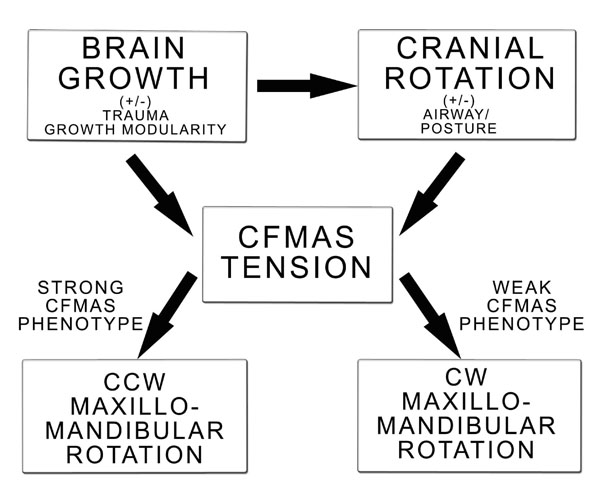Fig. (2) Algorithmic adaptation of the proposed CFG model. Displayed is brain growth modulation of cranial rotation and CFMAS tension. Brain growth can display temporal regional growth and mylenization with normal development and as a result of trauma (concussion, drug use). Cranial rotation modulates CFMAS tension and itself is influenced by brain development and postural control. CFMAS tension manifests as as a strong or weak phenotype. A strong CFMAS phenotype will be expected to develop a counter-clockwise/forward maxillomandibular rotation, while a weak CFMAS phenotype will be expected to develop a clockwise/backward maxillomandibular rotation pattern.

